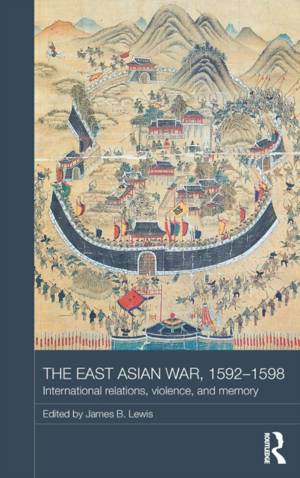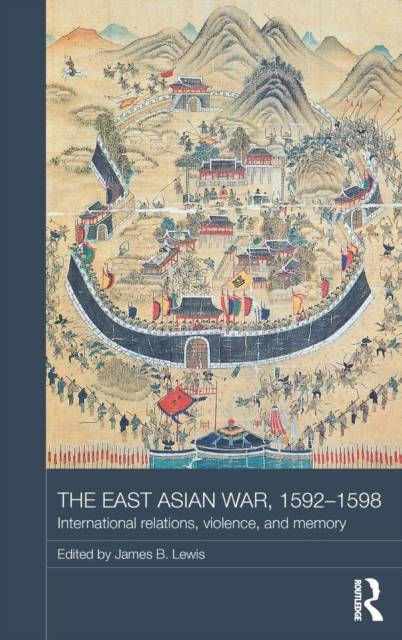
- Retrait gratuit dans votre magasin Club
- 7.000.000 titres dans notre catalogue
- Payer en toute sécurité
- Toujours un magasin près de chez vous
- Retrait gratuit dans votre magasin Club
- 7.000.000 titres dans notre catalogue
- Payer en toute sécurité
- Toujours un magasin près de chez vous
The East Asian War, 1592-1598
International Relations, Violence and Memory
Description
As East Asia regains its historical position as a world centre, information on the history of regional relations becomes ever more critical. Astonishingly, Northeast Asia enjoyed five centuries of international peace from 1400 to 1894, broken only by one major international war - the invasion of Korea in the 1590s by Japan's ruler Hideyoshi. This war involved Koreans, Japanese, Chinese, Southeast Asians, and Europeans; it saw the largest overseas landing in world history up to that time and devastated Korea. It also highlighted the nature of the strategic balance in the region, presenting China's Ming dynasty with a serious threat that perhaps foreshadowed the dynasty's subsequent overthrow by the Manchus, played a major part in the establishment of the Tokugawa regime with its policy of peace and controlled access to seventeenth- and eighteenth-century Japan, and demonstrated the importance for regional stability of the subtle relationship of Korea to both China and Japan. This book presents a comprehensive analysis of the war and its aftermath in all its aspects - military, political, social, economic, and cultural. As such it deepens understanding of East Asian international relations and provides important insights into the strategic concerns that continue to operate in the region at present.
Spécifications
Parties prenantes
- Editeur:
Contenu
- Nombre de pages :
- 418
- Langue:
- Anglais
- Collection :
Caractéristiques
- EAN:
- 9781138786639
- Date de parution :
- 12-12-14
- Format:
- Livre relié
- Format numérique:
- Genaaid
- Dimensions :
- 155 mm x 231 mm
- Poids :
- 725 g






